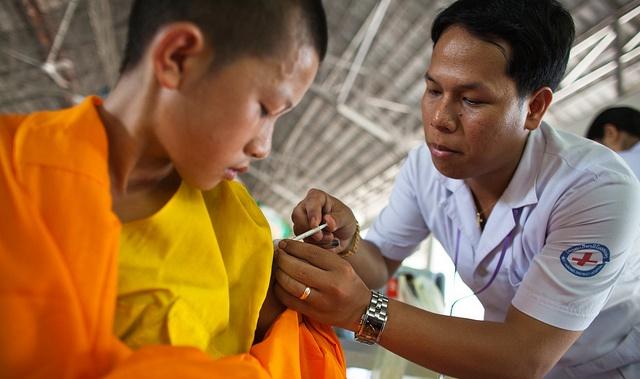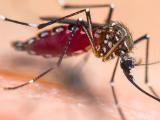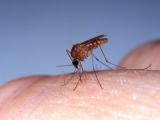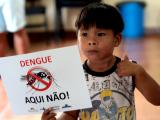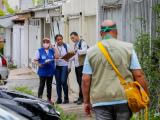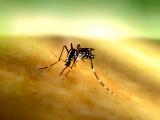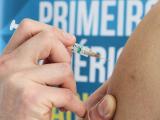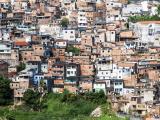Long-term follow-up results in three large phase 2 and 3 trials suggest that an experimental dengue vaccine, CYD-TDV, lowers dengue-related hospitalization risk in older children but may increase the risk in younger ones, according to a report today in the New England Journal of Medicine.
The report covers two phase 3 trials, one (CYD14) conducted in five countries in the Asia Pacific region and the other (CYD15) involving five Latin American countries. In addition, it includes children ages 4 through 11 years from a single-center phase 2b study (CYD23) in Thailand. The children all received three doses of the Sanofi Pasteur vaccine, at baseline, 6 months and 12 months. The vaccine covers all four dengue serotypes.
The authors said the pooled efficacy for preventing symptomatic dengue infection in the first 25 months of the two international trials was 60.3% for all ages (95% confidence interval [CI], 55.7% to 64.5%), but efficacy was higher in children 9 years and older (65.6%) than in younger children (44.6%).
Hospitalization data dissected
In the new study, the researchers report the incidence of hospitalization for dengue in the third year of the international trials and years 3 and 4 of the Thai trial. They used hospitalization as a surrogate marker for disease severity to evaluate whether vaccinees have a predisposition to more severe illness.
For the three trials combined, 65 of 22,177 participants in the vaccine group and 39 of 11,089 participants in the control group were hospitalized for severe dengue. For vaccinees, the overall relative risk of hospitalization was 0.84 (95% CI, 0.56 to 1.24), but the risk for those younger than 9 years was 1.58 (95% CI, 0.83 to 3.02), versus 0.50 (95% CI, 0.29 to 0.86) for those 9 and older.
The team also found that during year 3, hospitalization for severe dengue, as defined by an independent monitoring committee, occurred in 18 of 22,177 participants in the vaccine group and 6 of 11,089 in the control group. All of the children recovered.
Chance findings in younger set?
In an accompanying editorial, Cameron P. Simmons, PhD, of the University of Melbourne writes that it is unknown whether the higher hospitalization rate in the younger children reflects a higher incidence of symptomatic infection in that group, because the surveillance was hospital-based only. He observed that the increased risk of hospitalization was most pronounced in children 2 to 5 years old.
Simmons said the results could be chance findings. Alternatively, he wrote, they may suggest that the vaccine generates only transient immunity in some young children with no previous dengue exposure, with subsequent waning of antibodies predisposing them to infection that leads to hospitalization. The study authors note that a person's second dengue infection can result in more severe illness than the first one.
"A critical question," Simmons wrote, "is whether the elevated risk of hospitalization for dengue that was observed in young recipients of CYD-TDV is a short-term or long-term phenomenon; potentially, booster doses of vaccine might be used to break the disease-risk profile."
See also:
Jul 27 N Engl J Med report
Jul 27 N Engl J Med editorial
Related Jan 9 CIDRAP News item
